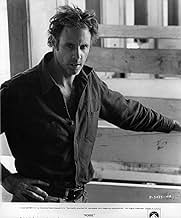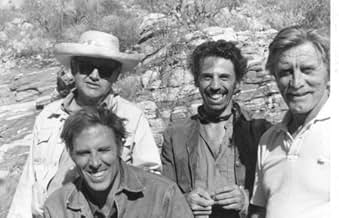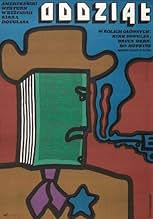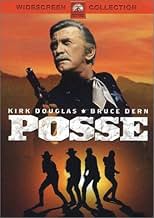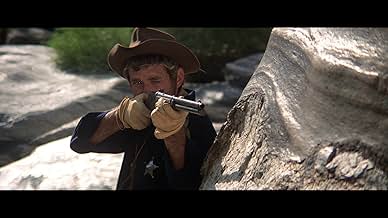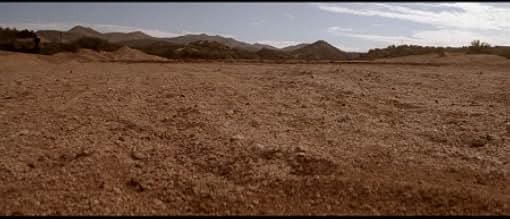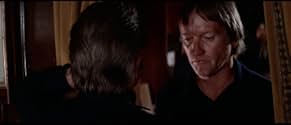IMDb RATING
6.5/10
2.6K
YOUR RATING
An unscrupulous politico marshal and his deputies chase a gang of train robbers whose leader proves that every man has his price.An unscrupulous politico marshal and his deputies chase a gang of train robbers whose leader proves that every man has his price.An unscrupulous politico marshal and his deputies chase a gang of train robbers whose leader proves that every man has his price.
- Awards
- 1 nomination total
William H. Burton
- McCanless
- (as Bill Burton)
Featured reviews
U.S Marshal Howard Nightingale is a man who has big political aspirations and to achieve this dream. He and his posse of deputies go after an out-law Jack Strawhorn. When Nightingale captures Strawhorn, just like his other captors or conquests he exploits it through the media for public support. Strawhorn would be Nightingale's ticket into the US senate, but Strawhorn thinks otherwise.
Can westerns be too low-key? 'Posse' felt so. Kirk Douglas directs and stars in this understated, but thoroughly ambitious under-the-radar western that had something cynical to say when it came to its closing credits. Quite heavy-handed and aware of its messages (money buys loyalty with the guys donning their badges being no better than the outlaws and representing an image (the people's?) to manipulative achieve a politically upper-hand), but the story's format is just so odd and subversive. The western conventions are there, but by the end William Roberts and Christopher Knopf's cleverly sharp (if sly) material basically turned it upside down with an ironic turn of events. It has that fragrance of the pioneer Hollywood westerns, but its punishing violence and sexual inclusions with a quiet, but powerful conclusion roots it in the 70s. The unusual theme to it and the effortlessly collected and cool-witted performances of Kirk Douglas and Bruce Dern (who shared a terrific chemistry) cover for how mechanical the film did look. Nothing totally skillful or stylish about it. Douglas' direction is raggedly rough and a little too plain. However some action shootouts and chase sequences were competently entertaining, but when the violence did hit, it wasn't presented in such a meaningless parade. It went hand-to-hand with the thoughtful nature of the script. Dick O'Neill's taut, but at times flashy photography is fluidly shot and Maurice Jarre's uncanny score is strongly delivered. Supporting Douglas and Dern (who's character's made great for sparing confrontations) is excellent performances by Bo Hopkins, James Stacy, Beth Brickell, Dick O'Neill and Alfonso Arau. A western that's too interesting to pass up because of the calculating tone lurking underneath.
Can westerns be too low-key? 'Posse' felt so. Kirk Douglas directs and stars in this understated, but thoroughly ambitious under-the-radar western that had something cynical to say when it came to its closing credits. Quite heavy-handed and aware of its messages (money buys loyalty with the guys donning their badges being no better than the outlaws and representing an image (the people's?) to manipulative achieve a politically upper-hand), but the story's format is just so odd and subversive. The western conventions are there, but by the end William Roberts and Christopher Knopf's cleverly sharp (if sly) material basically turned it upside down with an ironic turn of events. It has that fragrance of the pioneer Hollywood westerns, but its punishing violence and sexual inclusions with a quiet, but powerful conclusion roots it in the 70s. The unusual theme to it and the effortlessly collected and cool-witted performances of Kirk Douglas and Bruce Dern (who shared a terrific chemistry) cover for how mechanical the film did look. Nothing totally skillful or stylish about it. Douglas' direction is raggedly rough and a little too plain. However some action shootouts and chase sequences were competently entertaining, but when the violence did hit, it wasn't presented in such a meaningless parade. It went hand-to-hand with the thoughtful nature of the script. Dick O'Neill's taut, but at times flashy photography is fluidly shot and Maurice Jarre's uncanny score is strongly delivered. Supporting Douglas and Dern (who's character's made great for sparing confrontations) is excellent performances by Bo Hopkins, James Stacy, Beth Brickell, Dick O'Neill and Alfonso Arau. A western that's too interesting to pass up because of the calculating tone lurking underneath.
Released in 1975, "Posse" is a Western starring Kirk Douglas and Bruce Dern. Douglas plays, Nightingale, a marshal campaigning for the Senate in West Texas while Dern plays Strawhorn, a notorious outlaw leader whom Nightingale wants to bring in to increase his chances of winning the election. Bo Hopkins is on hand as one of the marshal's deputies while James Stacy plays a newspaper editor who opposes the marshal's campaign.
The movie debuted a year after Nixon resignation due to the Watergate scandal and "Posse" takes advantage of the public's loss of trust in politicians. Nightingale (Douglas) and his deputies are juxtaposed with Strawhorn (Dern) and his losers. There's no overt message, however, until the last 20 minutes. Speaking of which, the twist of the climax initially turned me off and filled me with disgust. But, after reflecting on it, I saw what the movie was getting across and respected it. It's just that the way the message is conveyed is awkwardly implemented. It could've been done more smoothly.
Some critics mistake the film's message as comparing a (supposedly) corrupt politician with a (supposedly) honest lawbreaker, but this is inaccurate. For one thing, "honest lawbreaker" is an oxymoron, particularly where Strawhorn is concerned. Right out of the gate the movie plainly shows him to be a murderous thug and, while a smooth-talker, he's never made out to be the good guy. He's a scumbag criminal worthy of hanging, impure and simple. Nor is Nightingale shown to be wickedly corrupt. He's a commanding marshal of the territory, which is a good thing; he has political aspirations and ties to the railroad, so what? Even when tempted by the blonde hottie Mrs. Ross (Beth Brickell) he charmingly turns her down on the grounds that it wouldn't be advantageous. Isn't that what wisdom is-having the scruples to recognize and deny foolish, immoral or destructive desires/behaviors? For more insights on the message of the movie remember that the film is called "Posse." See below for details.
Beyond the movie's message, "Posse" is a competent, entertaining Western with interesting characters, a quality cast and quite a bit of action.
The film runs 92 minutes and was shot in Sabino Canyon, Florence, Sonoita, Aravaipa Canyon and Old Tucson, Arizona.
GRADE: B-/C+
***SPOILER ALERT*** (Don't read further if you haven't seen the movie)
I didn't find the deputies' sudden shift to the life of outlawry to be believable. True, they would each have $6000, which would've taken three years for them to make doing honest work, but it wasn't like this was enough moolah to radically change their lives, not to mention they'd lose the prestige that came with being deputies; and the possibility of becoming marshals or sheriffs one day. No matter how you slice it, this was an awkwardly implemented twist and lowers my grade of the film.
That said, there were signs that the 'posse' were already bad (with the exception of one deputy who refused to betray Nightingale and turn to crime). For instance, at least three of them are shown secretly bedding some young babes from the town in a conveniently available boxcar. These nubile ladies were obviously attracted to the "bad boys," which just so happen to be 'upstanding deputies,' members of the brave posse. What else is new?
So what's the movie saying? The line between respectable profession and outlawry can be very thin. People can be in an honest occupation and be corrupt; they're essentially just masquerading. It happens everywhere all the time. One critic lambasted the film for it's "tortuous confusion of good and evil." Actually, the movie just sheds light on the existence of evil in places where people naively pull the wool over the eyes not to see it. Look no further than HeyLIARy.
What about Nightingale? Was he shady or just his men? I personally don't think he was. He struck me as an ambitious justice-seeking marshal with political ambitions and he refused to even consider an illicit sexual liaison. But it's not a good reflection on his character that the majority of his men were corrupt, so maybe he was too, at least a little; and it would overtly manifest down the line in office.
Despite my criticisms, any movie that can spur such questions is worth checking out.
The movie debuted a year after Nixon resignation due to the Watergate scandal and "Posse" takes advantage of the public's loss of trust in politicians. Nightingale (Douglas) and his deputies are juxtaposed with Strawhorn (Dern) and his losers. There's no overt message, however, until the last 20 minutes. Speaking of which, the twist of the climax initially turned me off and filled me with disgust. But, after reflecting on it, I saw what the movie was getting across and respected it. It's just that the way the message is conveyed is awkwardly implemented. It could've been done more smoothly.
Some critics mistake the film's message as comparing a (supposedly) corrupt politician with a (supposedly) honest lawbreaker, but this is inaccurate. For one thing, "honest lawbreaker" is an oxymoron, particularly where Strawhorn is concerned. Right out of the gate the movie plainly shows him to be a murderous thug and, while a smooth-talker, he's never made out to be the good guy. He's a scumbag criminal worthy of hanging, impure and simple. Nor is Nightingale shown to be wickedly corrupt. He's a commanding marshal of the territory, which is a good thing; he has political aspirations and ties to the railroad, so what? Even when tempted by the blonde hottie Mrs. Ross (Beth Brickell) he charmingly turns her down on the grounds that it wouldn't be advantageous. Isn't that what wisdom is-having the scruples to recognize and deny foolish, immoral or destructive desires/behaviors? For more insights on the message of the movie remember that the film is called "Posse." See below for details.
Beyond the movie's message, "Posse" is a competent, entertaining Western with interesting characters, a quality cast and quite a bit of action.
The film runs 92 minutes and was shot in Sabino Canyon, Florence, Sonoita, Aravaipa Canyon and Old Tucson, Arizona.
GRADE: B-/C+
***SPOILER ALERT*** (Don't read further if you haven't seen the movie)
I didn't find the deputies' sudden shift to the life of outlawry to be believable. True, they would each have $6000, which would've taken three years for them to make doing honest work, but it wasn't like this was enough moolah to radically change their lives, not to mention they'd lose the prestige that came with being deputies; and the possibility of becoming marshals or sheriffs one day. No matter how you slice it, this was an awkwardly implemented twist and lowers my grade of the film.
That said, there were signs that the 'posse' were already bad (with the exception of one deputy who refused to betray Nightingale and turn to crime). For instance, at least three of them are shown secretly bedding some young babes from the town in a conveniently available boxcar. These nubile ladies were obviously attracted to the "bad boys," which just so happen to be 'upstanding deputies,' members of the brave posse. What else is new?
So what's the movie saying? The line between respectable profession and outlawry can be very thin. People can be in an honest occupation and be corrupt; they're essentially just masquerading. It happens everywhere all the time. One critic lambasted the film for it's "tortuous confusion of good and evil." Actually, the movie just sheds light on the existence of evil in places where people naively pull the wool over the eyes not to see it. Look no further than HeyLIARy.
What about Nightingale? Was he shady or just his men? I personally don't think he was. He struck me as an ambitious justice-seeking marshal with political ambitions and he refused to even consider an illicit sexual liaison. But it's not a good reflection on his character that the majority of his men were corrupt, so maybe he was too, at least a little; and it would overtly manifest down the line in office.
Despite my criticisms, any movie that can spur such questions is worth checking out.
The outlaw Jack Strawhorn (Bruce Dern) is betrayed by one of his men, Pensteman (David Canary), after robbing US$ 40,000.00 from a train. During the night, his gang is ambushed in a barn by Marshal Howard Nightingale (Kirk Douglas) and his posse that set fire on the place, burning the criminals and the money, but Strawhorn escapes from the attack. He heads to Tesota, Texas, where he kills Pensteman and the local sheriff. Meanwhile, the ambitious Marshal Nightingale that is running for the senate is traveling by train with his posse to Tesota, expecting to capture Strawhorn to help him to win the elections. Nightingale succeeds in his manhunt and poses of hero, but while Strawhorn is in the jail, he poisons the posse asking what will happen with them after the election of their boss. During the transportation of Strawhorn for judgment by train, the outlaw reverts the situation and captures Nightingale. Now he demands the same amount he lost in the fire to release Nightingale and the posse force the locals to give the money to rescue the marshal.
"Posse" is a western with a cynical and amoral tale of leadership, disloyalty and greedy. The twist in the very end is totally unexpected and all the characters are despicable and disloyal with no exception. Marshal Howard Nightingale is probably the worst, with all the characteristics that politicians usually have. James Stacy lost his left arm and left leg when he was riding a motorcycle with his girlfriend and they were struck by a drunk driver that also killed his girlfriend. My vote is seven.
Title (Brazil): "Ambição Acima da Lei" ("Ambition above the Law")
"Posse" is a western with a cynical and amoral tale of leadership, disloyalty and greedy. The twist in the very end is totally unexpected and all the characters are despicable and disloyal with no exception. Marshal Howard Nightingale is probably the worst, with all the characteristics that politicians usually have. James Stacy lost his left arm and left leg when he was riding a motorcycle with his girlfriend and they were struck by a drunk driver that also killed his girlfriend. My vote is seven.
Title (Brazil): "Ambição Acima da Lei" ("Ambition above the Law")
Bet you didn't know that Kirk Douglas took the director's chair a couple of times, POSSE being one of them. If you like westerns, like me, you'll probably find this decent. The movie does suffer from the middle third of the movie, where the story pretty much grinds to a halt. Though this part wasn't really boring, it will probably make you wish they would get on with it. Also, the actions taken by certain characters near the end, though having some justification, didn't seem to have enough justification.
On the positive side, POSSE is well shot, well acted, good production values, and an interesting ending. It's worth seeing.
P.S. - Leonard Maltin's description of this movie isn't exactly how the movie plays.
On the positive side, POSSE is well shot, well acted, good production values, and an interesting ending. It's worth seeing.
P.S. - Leonard Maltin's description of this movie isn't exactly how the movie plays.
Kirk Douglas had already directed the somewhat terrible Scalawag in 1973, but that previous flop did not deter him from having a second stab at the directing job a couple of years on. Fortunately, Posse is a much more accomplished film than Scalawag in every way: Douglas's own direction is more assured, the script by Christopher Knopf and William Roberts is very literate and clever, and Fred Koenekamp's cinematography has a good, professional look about it. By 1975, one would have thought that there would be little mileage left in the western genre. It seemed that nothing new could be done, but this one comes up with a fresh twist by having the "hero" gradually revealed as an unlikable and ambitious social climber.
Marshal Howard Nightingale (Douglas) publicly announces that he will bring in infamous railroad bandit Jack Strawhorn (Bruce Dern). Although Strawhorn is a criminal of considerable notoriety - and definitely a man who belongs behind bars - Nightingale has an ulterior motive for apprehending his man. For the good Marshal has decided to run for the Texan senate, and believes that if he can nail Strawhorn - painting himself as a hero into the bargain - he will win over plenty of voters. Gradually, more and more people begin to see through Nightingale's selfish and egotistical political plans. His own posse have their doubts about how they will figure in the Marshal's future schemes; a news editor named Hellman (James Stacy) expresses distrust over the Marshal's ludicrously self-important opinion of himself; even Strawhorn eventually realises what his sly adversary is up to. Ultimately, Nightingale loses his posse and his public favour, with a little clever intervention from Strawhorn, and sees his political dreams left in tatters.
The critical response to Posse was much more favourable than Douglas's previous directing attempt, and deservedly so. The western action in the film is good, solid stuff, not too violent (as was the trend in '75), but certainly tough enough to satisfy genre addicts. Douglas gives a strong performance as the absurdly self-obsessed marshal, and Dern is even better as the charismatic, even likable, bandit. The subversive nature of the plot (hero gradually turns out to be villain, villain gradually turns out to be hero) is intriguing and fairly fresh, and helps to add interest to the film. While Posse has occasional lulls, and a few noticeably amateurish performances lower down the cast list, it remains a fresh, interesting, and intriguing addition to a virtually exhausted genre.
Marshal Howard Nightingale (Douglas) publicly announces that he will bring in infamous railroad bandit Jack Strawhorn (Bruce Dern). Although Strawhorn is a criminal of considerable notoriety - and definitely a man who belongs behind bars - Nightingale has an ulterior motive for apprehending his man. For the good Marshal has decided to run for the Texan senate, and believes that if he can nail Strawhorn - painting himself as a hero into the bargain - he will win over plenty of voters. Gradually, more and more people begin to see through Nightingale's selfish and egotistical political plans. His own posse have their doubts about how they will figure in the Marshal's future schemes; a news editor named Hellman (James Stacy) expresses distrust over the Marshal's ludicrously self-important opinion of himself; even Strawhorn eventually realises what his sly adversary is up to. Ultimately, Nightingale loses his posse and his public favour, with a little clever intervention from Strawhorn, and sees his political dreams left in tatters.
The critical response to Posse was much more favourable than Douglas's previous directing attempt, and deservedly so. The western action in the film is good, solid stuff, not too violent (as was the trend in '75), but certainly tough enough to satisfy genre addicts. Douglas gives a strong performance as the absurdly self-obsessed marshal, and Dern is even better as the charismatic, even likable, bandit. The subversive nature of the plot (hero gradually turns out to be villain, villain gradually turns out to be hero) is intriguing and fairly fresh, and helps to add interest to the film. While Posse has occasional lulls, and a few noticeably amateurish performances lower down the cast list, it remains a fresh, interesting, and intriguing addition to a virtually exhausted genre.
Did you know
- TriviaThis movie was the first role for James Stacy following his 1973 motorcycle accident in which he was hit by a drunk driver, resulting in the loss of his left arm and left leg. Kirk Douglas created the role especially for Stacy.
- GoofsUS Senators were not directly elected at the time of the film's setting. They were appointed by State Legislatures until the 17th Amendment in 1913.
- Quotes
Jack Strawhorn: Every day above ground is a good day.
- ConnectionsReferenced in Talking Pictures: Allan Warnick, Supporting Actor in 'Chinatown' (2022)
- SoundtracksI've Been Working on the Railroad
(uncredited)
Traditional
The first line is sung during Nightingale's speech
- How long is Posse?Powered by Alexa
Details
Box office
- Budget
- $2,000,000 (estimated)
Contribute to this page
Suggest an edit or add missing content



